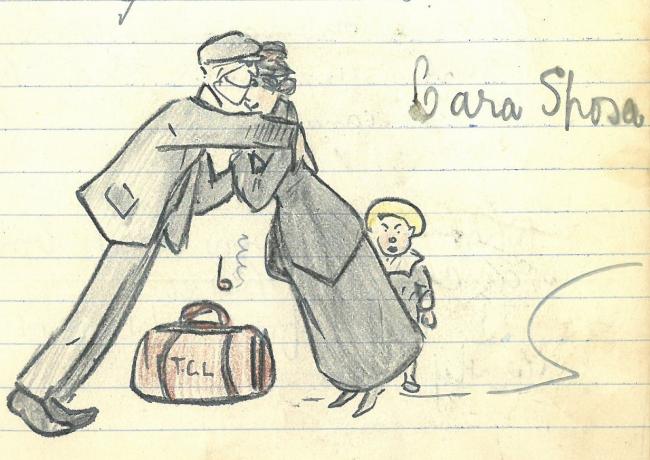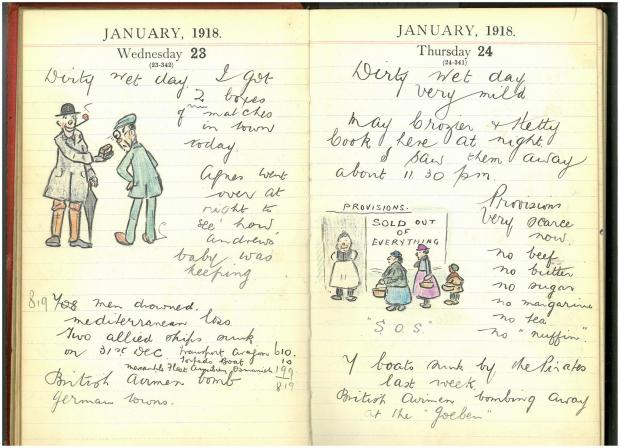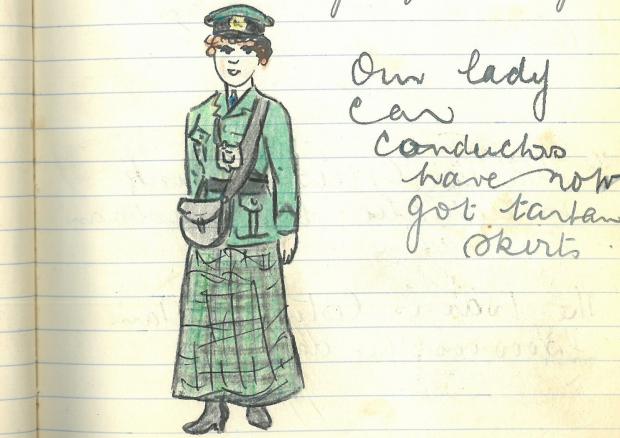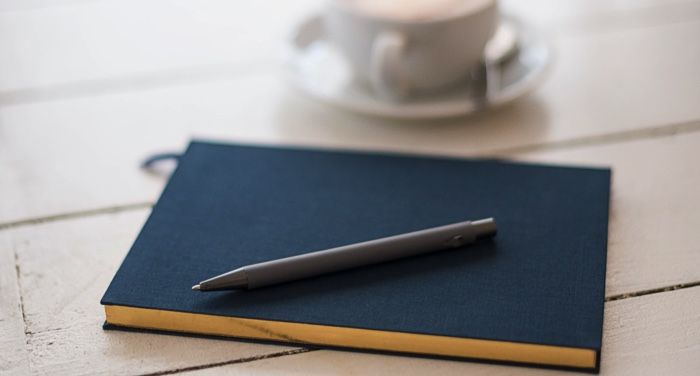
After my daughter was born, I moved into my parents’ house in New Jersey for three weeks with my husband. As a clueless first-time parent, I knew I would need their guidance.
One morning when I was blearily changing my daughter’s diaper, I asked my mom when I started sleeping through the night as a baby.
She shrugged. “I have no idea,” she said.
Later I asked her when I started eating solid foods. “I think you had colic,” she said. That was my sister, I reminded her. Starved for any kernel of information about that first year, I asked her what she did remember.
She thought for a moment. Her lone recollection was that when she was pregnant, she craved Popsicles. And the cigarettes she had given up.
I wished she had written something, anything, down. It would have been gratifying to read an account in her voice as she faltered through parenthood as I was doing now. But at the time, she was an overwhelmed young mom herself, attempting to raise a baby thousands of miles from her own family in Alabama.
I kept thinking of my own daughter, and how, in the far-off future, she might welcome these little tidbits if she became a parent herself. I began to write down everything I could remember about her birth. I wrote about how it was misty and the birds were singing on that predawn May day that we drove to the hospital. How, when I arrived, I dramatically announced to the receptionist that I was in labour, expecting to be immediately rushed away on a gurney like I had seen in the movies. (“Uh huh, take a seat,” she said, barely looking up.)
Making sense of the ‘confusion and chaos’
Even though it was usually the last thing I wanted to do at the end of the day when I was bone-tired, I started jotting down a few lines, once or twice a week — although I assumed I would certainly remember the details of the most significant event of my life.
Recently, I read over what I had written the first year, and was astonished to realize I had completely forgotten a good three quarters of it.
Which is no surprise. While research on so-called “baby brain” is mixed, the effects of fatigue — the bane of new parents — on memory are well-documented, said Rachel Marie E. Salas, associate professor of neurology at Johns Hopkins.
The thought of journaling while caring for a newborn is admittedly exhausting. Others have good intentions, and duly buy a baby book to fill out — for the first child, anyway. “I remember being so upset that my mom made my older sister a photo album, complete with notes and a lock of her hair from her first haircut, and she never made me one,” said Katherine Bunker, a library associate in Fort Collins, Colo. After Bunker became a parent, she confessed, she made “a wonderful baby book for my first kid, complete with all sorts of milestones and details. My third kid has nothing.”
But it’s never too late to write down the story of your child’s birth or adoption and early years — even if you only remember impressionistic little bursts, or your kids are older. And given how wildly uncertain the future seems at this moment, it may be a good time to look backward.
While it’s true that parents who are worn out by working and remote learning aren’t necessarily craving a “pandemic project,” scribbling a quick sentence here and there not only provides a future keepsake for your child, it’s a form of therapy to make sense of the confusion and chaos that is parenthood. Eventually, these small recollections will form a larger narrative that tells your child’s story, said Morgan Stromberg, a marriage and family therapist in Chico, Calif., and a single father.
‘You belong. We belong.’
Stromberg created an email account for his daughter four months before her birth, when he decided on her name. “I did it because I wanted her to know she was loved from the first moment, and have access to stories from the man that knows her the best,” he said. Stromberg has been regularly sending emails for her to read when she is older. “This creates a sense of unity and safety with our children that molds their identity and aids in their sense of belonging,” he said. These accumulated memories and moments, he added, act as a foundation against the uncertainty of the larger world.
“I have a 6-year-old daughter, and I’ve written things down since she was born because my mother did it in the ’70s,” said Takara Rooks, a therapist in New York City. “She kept a journal while she was pregnant with me, and wrote a letter to me when I was six months old, telling me how wonderful it was to be my mother. I once asked her what prompted her to do this, and she said there had been a movie out where the woman had a baby, and then recorded a journal and died. And my mother just bawled her eyes out and said, ‘What if something happened to me?’ I commend her for doing that, because having a newborn is the hardest thing in the world.”
Family stories, Rooks said, speak to our psychological need to say, You belong. We belong. “My grandmother kept a diary every day of her life,” she said. “We are an African-American family, and we as African-Americans don’t usually have a record of our history because of slavery, because things were taken from us,” she said. “But our family does.”
But many people are nervous about their writing abilities, or don’t know how to get started. This was the case with my sister, so I suggested easy writing prompts that addressed her sons directly: the most epic tantrum you ever had, what I remember from your first week of life, the best compliment a person gave me about you, funny words that you used, why I wanted to have a child, a time that you made me laugh hard.
Or simply write a letter, from your heart. The intimacy of a person’s own voice is immensely powerful. It doesn’t even need to be written: You can record your recollections on your phone, and forward it to a low-cost transcription service, like Temi.com. Send the manuscript to a company such as Blurb.com, which will convert it into an inexpensive hard-bound book, which can include photos (and can also be stored on the company’s cloud if the book is lost).
“Keeping any sort of journal is time-consuming, especially when your kids are little and your time is not your own,” said Rooks. “But it is valuable, because it is the story of your child through you, through your mother, and through your mother’s mother. It allows your child to get a sense of who they are, based on who you are.”
We now have several of these family books on our bookshelf. When my daughter was younger, she wasn’t interested in them, preferring to tuck into Don’t Let The Pigeon Drive The Bus. But as she has grown older, she has read the books so many times that she has memorized many of the passages — my sneaky intention, fulfilled.
Jancee Dunn is the author of “How Not To Hate Your Husband After Kids.”
https://www.nytimes.com/2020/10/26/parenting/baby-book-journal.html



